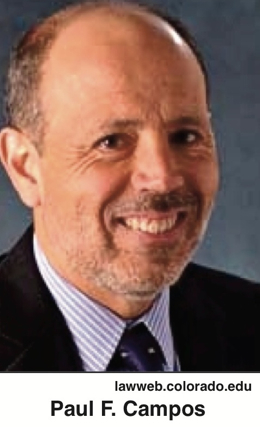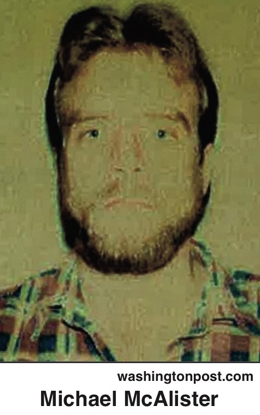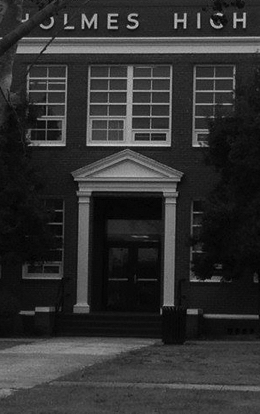Rascals case in brief
In the beginning, in 1989, more than 90 children at the Little Rascals Day Care Center in Edenton, North Carolina, accused a total of 20 adults with 429 instances of sexual abuse over a three-year period. It may have all begun with one parent’s complaint about punishment given her child.
Among the alleged perpetrators: the sheriff and mayor. But prosecutors would charge only Robin Byrum, Darlene Harris, Elizabeth “Betsy” Kelly, Robert “Bob” Kelly, Willard Scott Privott, Shelley Stone and Dawn Wilson – the Edenton 7.
Along with sodomy and beatings, allegations included a baby killed with a handgun, a child being hung upside down from a tree and being set on fire and countless other fantastic incidents involving spaceships, hot air balloons, pirate ships and trained sharks.
By the time prosecutors dropped the last charges in 1997, Little Rascals had become North Carolina’s longest and most costly criminal trial. Prosecutors kept defendants jailed in hopes at least one would turn against their supposed co-conspirators. Remarkably, none did. Another shameful record: Five defendants had to wait longer to face their accusers in court than anyone else in North Carolina history.
Between 1991 and 1997, Ofra Bikel produced three extraordinary episodes on the Little Rascals case for the PBS series “Frontline.” Although “Innocence Lost” did not deter prosecutors, it exposed their tactics and fostered nationwide skepticism and dismay.
With each passing year, the absurdity of the Little Rascals charges has become more obvious. But no admission of error has ever come from prosecutors, police, interviewers or parents. This site is devoted to the issues raised by this case.
On Facebook
Click for earlier Facebook posts archived on this site
Click to go to
Today’s random selection from the Little Rascals Day Care archives….
Click for earlier Facebook posts archived on this site
Click to go to
Today’s random selection from the Little Rascals Day Care archives….
Too bad ‘True Detective’ chose to mislead, not to enlighten
 March 15, 2014
March 15, 2014
“In an interview with Entertainment Weekly (True Detective creator Nic) Pizzolato responded to a question about the inspiration for the show: ‘You can Google “Satanism” “preschool” and “Louisiana” and you’ll be surprised at what you get.’
“This is clearly a reference to a 2005 child abuse prosecution in Ponchataoula, Louisiana, that generated lurid international headlines about ritualistic Satan worship inside a church, complete with black robes, animal blood, orgies, and pentagrams.
“This has since led various media sources to report breathlessly on the ‘true story’ behind True Detective. The problem is that this ‘true story’ turns out to be completely false, at least in regard to all the details regarding Satanic ritual abuse.
“These were apparently part of a classic atrocity story, invented by the defendants to garner sympathy from jurors – the idea being that the defendants were victims of an unspeakably evil church-based mind control cult, rather than merely being banally evil and not very interesting child molesters.
“What sort of moral responsibility do artists have not to exploit, and thereby perhaps propagate, moral panics? The aesthetic power of The Birth of a Nation and Triumph of the Will has not absolved their creators for choosing to exploit racist and anti-Semitic beliefs.
“Our shameful history of panics and persecutions over the imaginary satanic ritual abuse of children should have been treated by artists as talented as the makers of True Detectiveas a cautionary tale, rather than as an opportunity for further invidious myth-making.”
– From “True Detective’s dangerous lies about satanic ritual abuse” by Paul Campos at The Week (March 12)
I’m surprised to find myself cutting the just-concluded HBO series a bit more slack than Campos, a law professor at the University of Colorado. But True Detective’s potential for doing harm in 2014 seems minimal compared with the hysterically alarmist Do You Know the Muffin Man? which aired on Lifetime while arrests were still being made in the Little Rascals case.
Lack of DNA evidence opens way for injustice
 April 18, 2015
April 18, 2015
“DNA testing has been used 329 times now to prove the innocence of people wrongly convicted of a crime. But what happens when there is no DNA evidence to prove someone’s innocence? What happens when there is only his word, and the mounded doubts of the team that prosecuted and convicted him? And what happens when – despite growing certainty that it has imprisoned the wrong man for more than 20 years – the Commonwealth of Virginia stands poised to keep him locked up, possibly forever?
“Of all the maddening stories of wrongful convictions, Michael McAlister’s may be one of the worst. For starters, he has been in prison for 29 years for an attempted rape he almost certainly did not commit….”
– From “This Man Deserves a Pardon” by Dahlia Lithwick at Slate (April 13)
Michael McAlister’s story surely qualifies as “one of the worst,” but forgive me if I think Junior Chandler – coincidentally now serving his 29th year of imprisonment – has suffered every bit as much injustice. And in McAlister’s case at least a crime was actually committed, just not by him.
Betsy Kelly barred from reunion (but still got T-shirt!)
 June 28, 2015
June 28, 2015
“Today in Edenton members of John A. Holmes High School’s Class of ’73 will walk across a stage in caps and gowns, receive diplomas and turn tassels on their mortar boards – 20 years late.
“Their graduation ceremony was cancelled abruptly in 1973. A decision not to renew the contract of a black band leader had caused racial unrest, and school officials feared a disruption…. Diplomas were mailed to the 142 graduates….
“One member who doesn’t plan to attend is Elizabeth Twiddy Kelly…. A condition of her ($400,000) bond prohibits her from going to her hometown.
“ ‘There are a lot of them I would love to just touch base with, but that will have to happen another year,’ Mrs. Kelly said.
“The class committee plans to send her a class T-shirt and a letter.”
– From “Class of ’73” by the Associated Press (June 12, 1993)
Seven months later Betsy Kelly pleaded no contest to charges of child sex abuse, while maintaining her innocence, and accepted a sentence of seven years in prison. She was paroled in November 1994.
Officer Toppin sure had an eye for ‘red flags’
July 24, 2013
“(Edenton police officer Brenda) Toppin, who conducted the first interviews of children allegedly abused at the center, testified that ‘In the early interviews, I had very few children disclosing to me…. Most of the children were not telling me specifically about Mr. Bob.’
“ ‘Red flags,’ however, caused her to continue her questioning. The ‘red flags’ included children being tense when the subject of the day-care center was mentioned, she said, and not talking to her as normal children would.”
– From the Associated Press (December 4, 1991)
It doesn’t take much reading between the lines to see Brenda Toppin’s persistence in the face of “very few children disclosing to me” or her overreaction to those absurdly vague “red flags.”
A surviving fragment of tape laid out even more saliently her abusive interview technique. Read for yourself a transcript of one of Toppin’s interviews with a child. The transcript entered the court record during the appeals process.











0 CommentsComment on Facebook